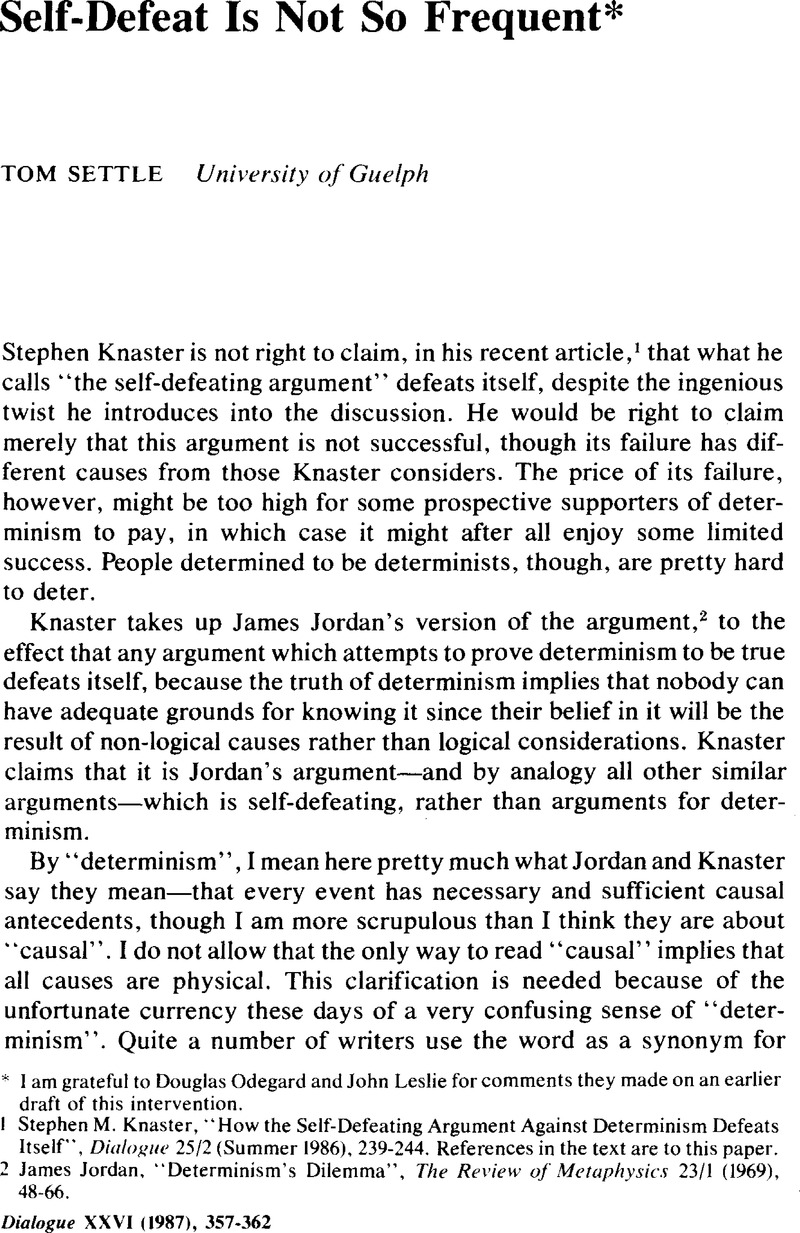No CrossRef data available.
Article contents
Self-Defeat Is Not So Frequent*
Published online by Cambridge University Press: 13 April 2010
Abstract

- Type
- Interventions
- Information
- Dialogue: Canadian Philosophical Review / Revue canadienne de philosophie , Volume 26 , Issue 2 , Summer 1987 , pp. 357 - 362
- Copyright
- Copyright © Canadian Philosophical Association 1987
References
1 Knaster, Stephen M., “How the Self-Defeating Argument Against Determinism Defeats Itself, Dialogue 25/2 (Summer 1986), 239–244CrossRefGoogle Scholar. References in the text are to this paper.
2 Jordan, James, “Determinism's Dilemma”, The Review of Metaphysics 23/1 (1969), 48–66Google Scholar.
3 Ayer, A. J., The Concept of the Person (London: MacMillan, 1963), 266–267CrossRefGoogle Scholar.
4 Jordan, “Determinism's Dilemma”, 60–63.
5 Ibid., 54.
6 Ibid.
7 See my “Presuppositions of Propensity Theories of Probability”, in Maxwell, G., Anderston, R. M. Jr, eds., Induction, Probability, and Confirmation (Minneapolis, MN: University of Minnesota Press, 1982)Google Scholar.
8 See further my “Human Freedom and 1568 Versions of Determinism and Indeterminism”, in Bunge, M., ed., The Methodological Unity of Science (Dordrecht: D. Reidel, 1975), 245–264;Google Scholar“Indeterminism Undermines Science”, Fundamenta Scientiae 3/1 (1973), 103–112Google Scholar.


